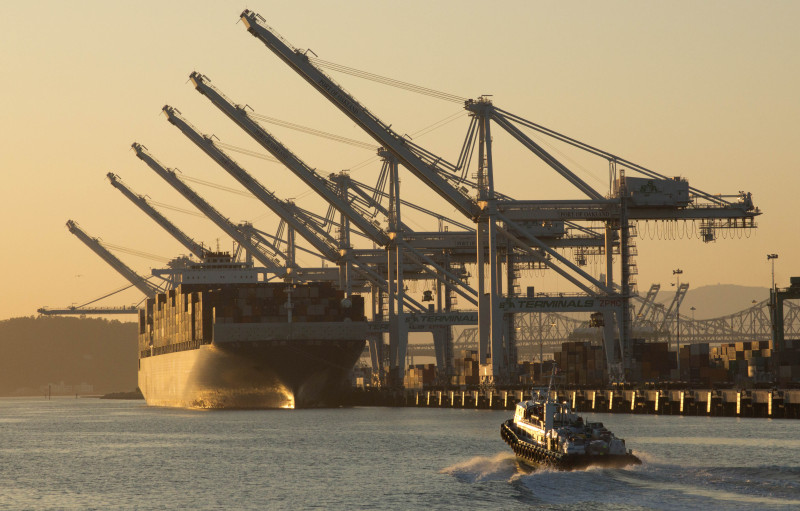According to reports, the union is confident its members will ratify the tentative agreement.
Original story:
LOS ANGELES — With a Friday deadline looming, negotiators labored to reach a deal in a contract dispute that has snarled international trade at seaports from Southern California to Seattle.
U.S. Secretary of Labor Thomas Perez told dockworkers and their employers that if they cannot find common ground in San Francisco, he will take the parties to Washington next week. The idea is that, after nine months of talks, it will help to have a change of scenery and proximity to elected leaders who are increasingly pushing for a resolution to economically damaging problems on the West Coast waterfront.
The International Longshore and Warehouse Union and the Pacific Maritime Association, made up of shipping companies and port terminal operators, are working under a media blackout and had no comment Friday.
Billions of dollars of cargo is sitting on dozens of massive ships anchored outside West Coast ports. They cannot dock because of historically bad cargo bottlenecks at 29 ports that handle about $1 trillion of trade annually, much of it with Asia.
Though the economic impact has been hardest on specific industries — U.S. produce and meat exporters, for example, and smaller importers of consumer goods — Wal-Mart Stores Inc. warned Thursday that port congestion could affect selection in the retail giant's stores.
Cargo already was moving slowly due to systemic problems in the supply chain, including a shortage of truckbeds to carry containers of cargo from dockside yards to distribution warehouses. Starting this fall, problems reached crisis levels as dockworkers slowed their work rate to comply fully with safety rules and companies that load and unload ships rolled out partial worker lockouts.
Employers said they would not pay extra wages on holidays and weekends to dockworkers they accused of purposely slowing down as a bargaining tactic, which their union denies.
Both imports and exports that would normally take a few days to clear the docks are now taking weeks.
Talks on a new contract began in May. The prior one lasted six years and expired in July, though longshoremen continued to work. After halting progress that led to agreements on issues including health care, talks broke down in recent weeks, and Perez began overseeing negotiations Tuesday.
The big remaining difference is over whether to change the arbitration system that dockworkers and companies use to resolve workplace conflicts.
